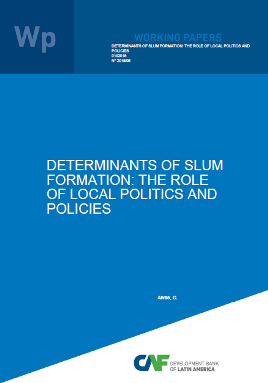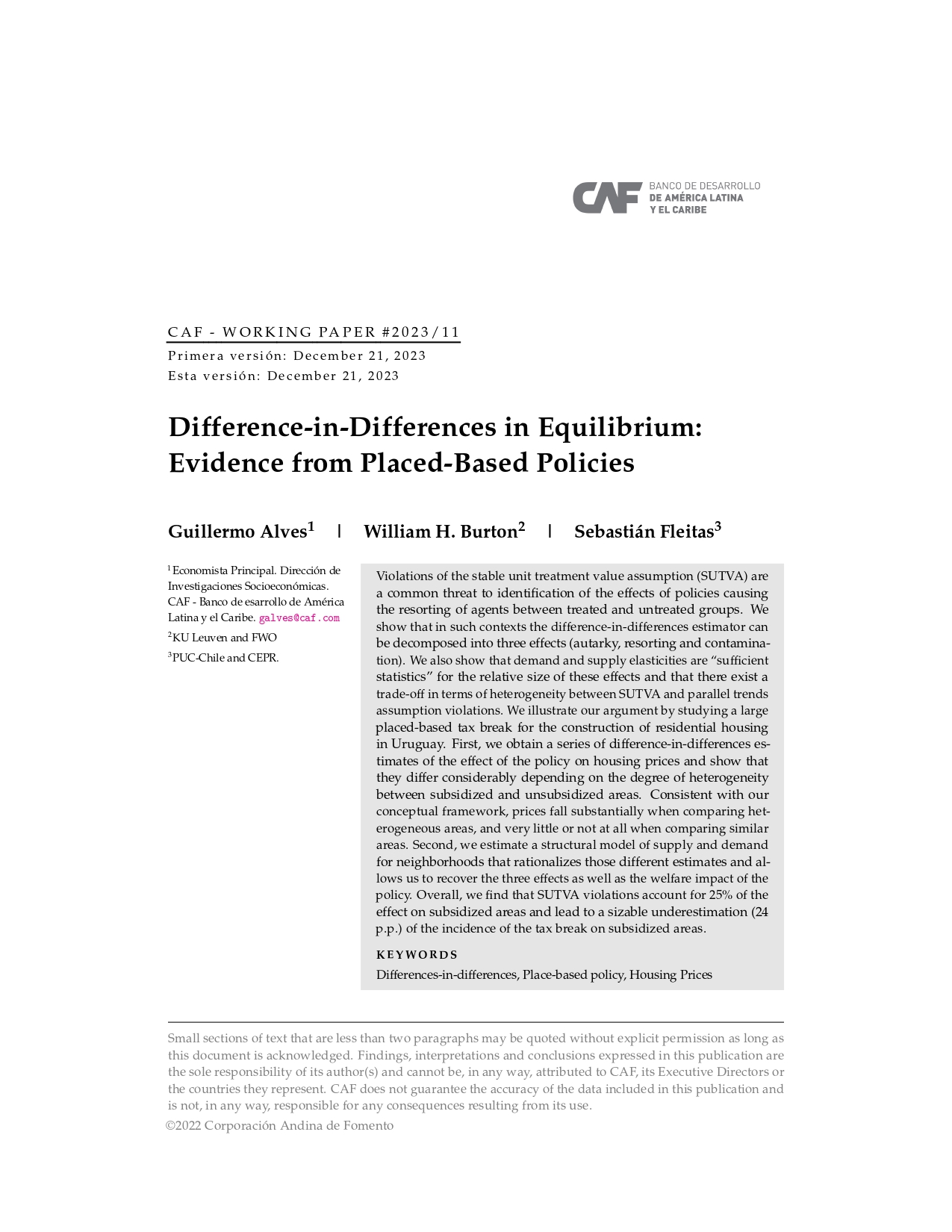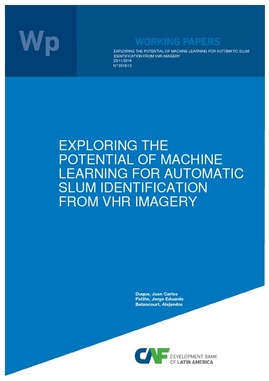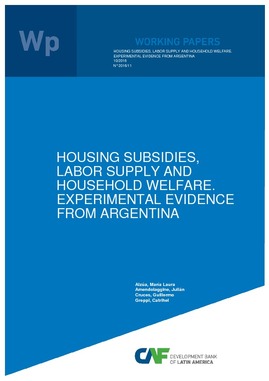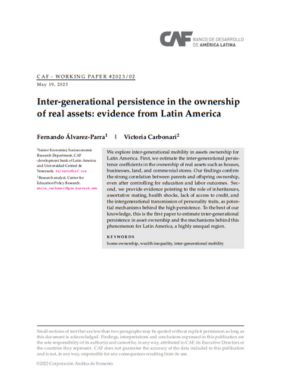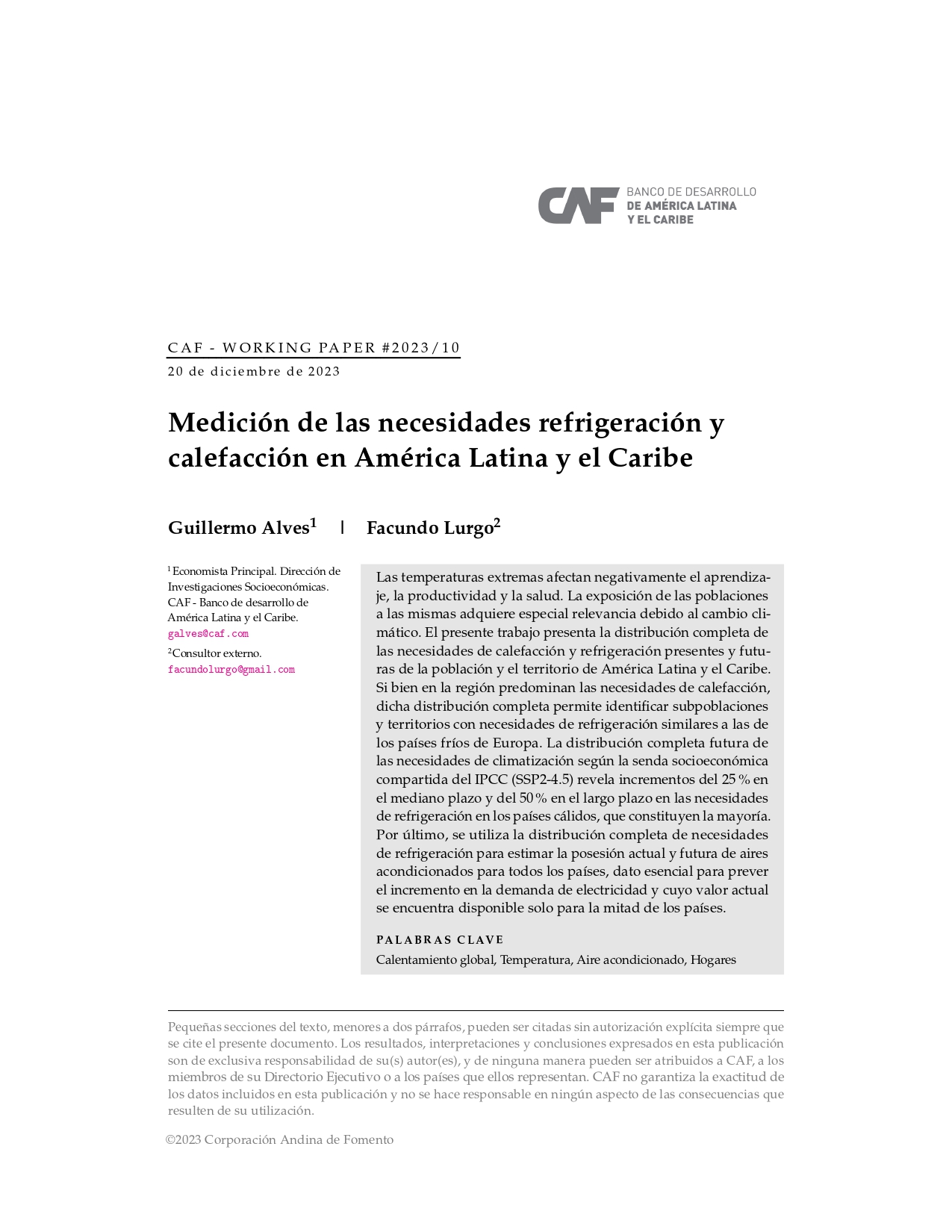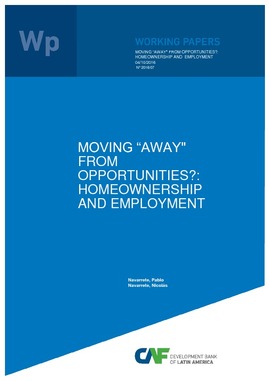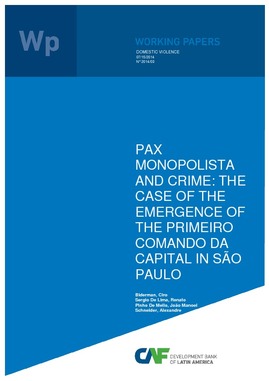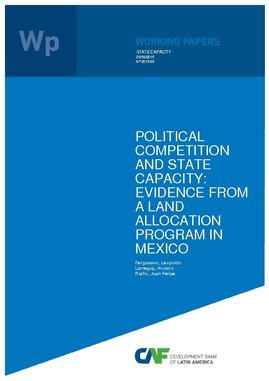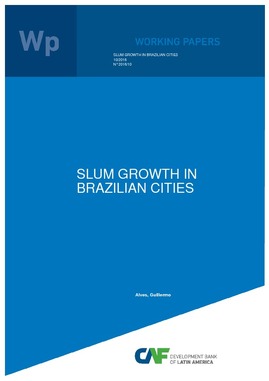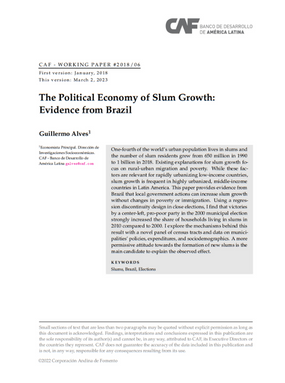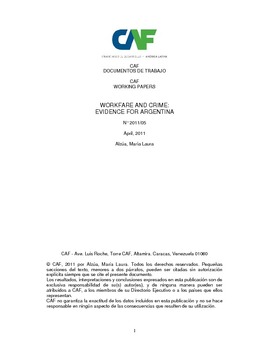Listar6.1 Documentos de trabajo en investigación socioeconómica por tema "Vivienda"
Mostrando ítems 1-13 de 13
-
Determinants of Slum Formation: The Role of Local Politics and Policies
(CAF; Caracas, 2018-01)One-third of the developing world’s population lives in urban slums and the absolute number of slum residents grew from 650 million in 1990 to 863 million in 2012. Although negative impacts of slum living conditions on ... -
Difference-in-Differences in Equilibrium: Evidence from Placed-Based Policies
(CAF- banco de desarrollo de América Latina y el Caribe; Distrito Capital, 2023-12-26)Violations of the stable unit treatment value assumption (SUTVA) are a common threat to identification of the effects of policies causing the resorting of agents between treated and untreated groups. We show that in such ... -
Effect of Socio-Economic Stratification on House Value in Bogotá
(CAF; Bogotá, 2016-12-24)This paper investigates the impact of urban fiscal policies on housing value. We use a focalization system in Bogotá where certain subsidies and taxes are targeted based on a classification of houses according to external ... -
Exploring the Potential of Machine Learning for Automatic Slum Identification from VHE Imagery
(CAF; Buenos Aires, 2016-11-23)Slum identification in urban settlements is a crucial step in the process of formulation of propoor policies. However, the use of conventional methods for slums detection such as field surveys may result time consuming and ... -
Housing Subsidies, Labor Supply and Household Welfare. Experimental Evidence from Argentina
(CAF; Buenos Aires, 2016-10)We study the impact of a social housing policy program implemented in Argentina, exploiting the random assignment rule to identify the policy's causal effect on labor market and other socio-economic outcomes. In particular, ... -
Inter-generational Persistence in the Ownership of Real Assets: Evidence from Latin America
(CAF, 2023-05-19)We explore inter-generational mobility in assets ownership for Latin America. Our findings confirm the strong correlation between parents and offspring ownership, even after controlling for education and labor outcomes. ... -
Medición de las necesidades refrigeración y calefacción en América Latina y el Caribe
(2023-12-20)Las temperaturas extremas afectan negativamente el aprendizaje, la productividad y la salud. La exposición de las poblaciones a las mismas adquiere especial relevancia debido al cambio climático. El presente trabajo presenta ... -
Moving “away" from Opportunities?: Homeownership and Employment
(CAF; Santiago de Chile, 2016-07-10)Homeownership is promoted by the majority of OECD member countries. Nevertheless, the impact that owning a house can have on employment levels is not fully understood. In this paper, we estimate the causal effect of ... -
Pax Monopolista and Crime: The Case of the Emergence of the Primeiro Comando da Capital in São Paulo
(CAF; Caracas, 2014-07-15)This paper documents a rare phenomenon: the consequence of the dominance of a single criminal gang in the city of São Paulo, the Primeiro Comando da Capital (PCC). Using unique data to identify entry in geographically ... -
Political constraints and state capacity: Evidence from a land allocation program in Mexico
(CAF, 2015-07-20)In this paper we contribute to the understanding of the politics of state building. We emphasize that incumbent clientelistic parties might have incentives to sustain state fragility when politically challenged. We develop ... -
Slum Growth in Brazilian Cities
(CAF; Caracas, 2016-10-10)I study slum growth in contemporary urbanization processes by estimating a spatial equilibrium model with houses with and without basic water and sanitation services in Brazilian cities between 1991 and 2010. Slum growth ... -
The Political Economy of Slum Growth: Evidence from Brazil
(2023)One-fourth of the world’s urban population lives in slums and the number of slum residents grew from 650 million in 1990 to 1 billion in 2018. Existing explanations for slum growth focus on rural-urban migration and poverty. ... -
Workfare and crime: evidence for Argentina
(CAF; Caracas, 2011)This paper investigates the effect of introducing a massive workfare program on property crimes. In order to circumvent the endogeneity problem common to joint factors determining crime and demand for workfare we make use ...


